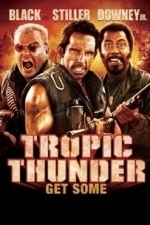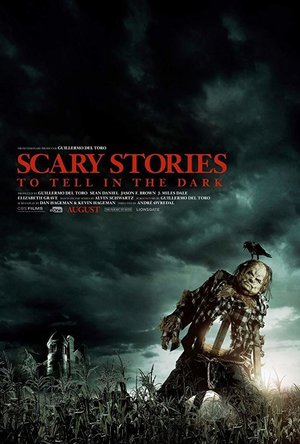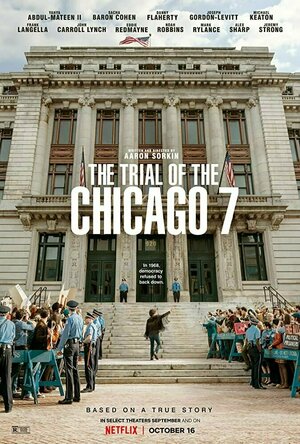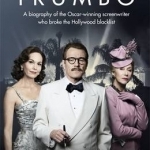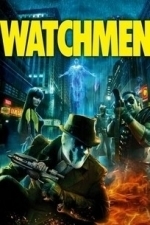Search

AikidoGuide
Sports and Education
App
THE AIKIDO GUIDE is a powerful tool that fully utilizes app technology to give a unique learning...
Gareth von Kallenbach (980 KP) rated Tropic Thunder (2008) in Movies
Aug 14, 2019
Deep in the jungles of Vietnam, one of the most expensive films in history is underway. The film is based upon a best seller by war hero Four Leaf Tayback (Nick Nolte), and stars three of the biggest stars in Hollywood so naturally expectations are very high for the film to become a box office blockbuster.
Unfortunately the production is troubled by one gaffe after another and finds itself lost in budget over runs, issues amongst the stars, and more drama than a Shakespeare festival.
The film is “Tropical Thunder” and Director and star Ben Stiller has assembled a talented cast that includes Jack Black and Robert Downey Jr. in a biting satire of the Hollywood machine.
Stiller stars as Tugg Speedman, a declining action star who sees the war film as his big chance to break away from his recent failures and move into more serious work. Tugg is overshadowed by the presence of multiple Oscar winner Kirk Lazarus (Robert Downey Jr.), who prepares for a part so intensely that he literally becomes the character he is portraying. Toward that end, he has undergone a skin pigment procedure in order to portray an African American soldier.
Rounding out the group, literally, is Jeff Portnoy (Jack Black), the star of flatulence based film comedy series and a man wracked by addiction to the point that he hides his drugs in a candy package and refers to them as his jelly beans.
After a staggeringly costly and impressive pyrotechnic display by the sets explosive expert Cody (Danny Mc Bride), the film is in danger of being halted by the money behind the film, an intensely angry Producer named Les Grossman (Tom Cruise).
In an effort to keep his film alive and salvage their careers, Four Leaf and the film’s Director decide to drop the cast in the thick of the jungle and shoot the film gorilla style with hidden cameras and various tricks to produce a grittier film and get the cast to start acting like the soldiers they are supposed to be portraying.
In a hilarious turn of events, the cast ends up trapped in the jungle and surrounded by members of the locale drug cartel. Convinced that it is all part of the film, Tugg and company blindly trudge along thinking all is going as scripted until things go hopelessly wrong, and force the cast to come to grips with the situation as well as their fragile egos and personal issues.
While the premise of the film is solid, and there are a good number of laughs in the film, for the most part “Tropic Thunder” is a hit or miss venture.
Robert Downey Jr. is amazing in his portrayal as he constantly steals his scenes with his expressions and one liners and almost single handled carries the film during some of the more tedious moments.
Stiller plays the patented Stiller character once again, the slow witted loser with a heart of gold, and despite his efforts, he is just not given enough material to fully push his character over the top, despite some funny moments.
The biggest disappointment for me was Jack Black who is sadly underused in the film. Jack is a very gifted and talented actor but he is given very little to work with, and precious few moments to let his talents shine. Owen Wilson was originally supposed to be in the film, and at times it seems that this part was written more with Wilson’s more subdued style of humor in mind.
Aside from the laughs, the film does have an abundance of celebrity cameos, and this truly helps the film. Sadly though, the plot really does not do justice to the premise nor talent in the film, and unfolds in a very unspectacular manner that had me expecting more.
This is not to say it is a bad film as I found myself laughing on more than one occasion, sadly it became fewer and father between laughs as the film unfolded to a very disappointing finale.
Unfortunately the production is troubled by one gaffe after another and finds itself lost in budget over runs, issues amongst the stars, and more drama than a Shakespeare festival.
The film is “Tropical Thunder” and Director and star Ben Stiller has assembled a talented cast that includes Jack Black and Robert Downey Jr. in a biting satire of the Hollywood machine.
Stiller stars as Tugg Speedman, a declining action star who sees the war film as his big chance to break away from his recent failures and move into more serious work. Tugg is overshadowed by the presence of multiple Oscar winner Kirk Lazarus (Robert Downey Jr.), who prepares for a part so intensely that he literally becomes the character he is portraying. Toward that end, he has undergone a skin pigment procedure in order to portray an African American soldier.
Rounding out the group, literally, is Jeff Portnoy (Jack Black), the star of flatulence based film comedy series and a man wracked by addiction to the point that he hides his drugs in a candy package and refers to them as his jelly beans.
After a staggeringly costly and impressive pyrotechnic display by the sets explosive expert Cody (Danny Mc Bride), the film is in danger of being halted by the money behind the film, an intensely angry Producer named Les Grossman (Tom Cruise).
In an effort to keep his film alive and salvage their careers, Four Leaf and the film’s Director decide to drop the cast in the thick of the jungle and shoot the film gorilla style with hidden cameras and various tricks to produce a grittier film and get the cast to start acting like the soldiers they are supposed to be portraying.
In a hilarious turn of events, the cast ends up trapped in the jungle and surrounded by members of the locale drug cartel. Convinced that it is all part of the film, Tugg and company blindly trudge along thinking all is going as scripted until things go hopelessly wrong, and force the cast to come to grips with the situation as well as their fragile egos and personal issues.
While the premise of the film is solid, and there are a good number of laughs in the film, for the most part “Tropic Thunder” is a hit or miss venture.
Robert Downey Jr. is amazing in his portrayal as he constantly steals his scenes with his expressions and one liners and almost single handled carries the film during some of the more tedious moments.
Stiller plays the patented Stiller character once again, the slow witted loser with a heart of gold, and despite his efforts, he is just not given enough material to fully push his character over the top, despite some funny moments.
The biggest disappointment for me was Jack Black who is sadly underused in the film. Jack is a very gifted and talented actor but he is given very little to work with, and precious few moments to let his talents shine. Owen Wilson was originally supposed to be in the film, and at times it seems that this part was written more with Wilson’s more subdued style of humor in mind.
Aside from the laughs, the film does have an abundance of celebrity cameos, and this truly helps the film. Sadly though, the plot really does not do justice to the premise nor talent in the film, and unfolds in a very unspectacular manner that had me expecting more.
This is not to say it is a bad film as I found myself laughing on more than one occasion, sadly it became fewer and father between laughs as the film unfolded to a very disappointing finale.
Gareth von Kallenbach (980 KP) rated Scary Stories to Tell in the Dark (2019) in Movies
Aug 9, 2019
I was introduced to Scary Stories to Tell in the Dark (the amazing book series written by Alvin Schwartz back in 1981) in my Junior High history class. An odd place for sure to listen to this amazing collection of stories, and yet it displayed how these stories are impactful even if you aren’t reading them around a campfire in the middle of the woods. Schwartz had written two additional sequels to his stories in 1984 and 1991 and the incredibly creepy illustrations (by Stephen Gammell) helped to complete a collection of books that are at home in anyone’s collection both young and old.
The 80’s was a decade obsessed with the occult and works of fiction that parents thought were written to corrupt the minds of the youth of the age. Before video games were blamed for all the evil in the world there was Heavy Metal music, the fantastical role-playing games such as Dungeons and Dragons and books such as these that parents rallied around and attempted to ban from schools and after school functions. Looking back now at the hysteria that this caused is almost laughable, but for those of us growing up in that time it was a very real threat to the imaginations of youth around the globe. Outside of this brief history lesson however, I wondered how the books would translate into a movie.
Our story begins on Halloween night, the year is 1968 and the Vietnam War and the upcoming presidential elections are on everyone’s mind. Stella (Zoe Colletti) and her nerd friends Chuck (Austin Zajur) and Auggie (Gabriel Rush) decide that this will be the year that they get revenge on the local bully Tommy (Austin Abrams) for all his years of stealing candy from them on Halloween. After things go predictably wrong, the young group of kids are pursued to a drive-in theater where they seek refuge in a car that is owned by another out-of-town youngster named Ramon (Michael Garza). As thanks for “saving” them from a certain beating, Stella and the group decide to take Ramon to a real-life haunted house. A place where a young Sarah Bellows would tell stories to frighten children only for them to end up dead days later. While exploring the house the young group discover the hidden room of young Sarah Bellows and come across her book of “Scary Stories”. Unable to contain her own curiosity, Stella takes the book home with her and watches as the words on the pages turn into living nightmares of their own darkest fears.
Produced by Guillermo del Toro, Patrick Melton and Marcus Dunstan, Scary Stories takes a handful of fan favorites and weaves them into a “scary” story of their very own. Instead of simply being a collection of haunting tales, each one serves a purpose, whether it’s the “Red Dot” or “Harold”, each one is used to drive the story even further along. While at first, I was hoping that it would be a collection of short stories featuring these timeless classics, the way in which each individual story progresses the plot leads to a far more interesting experience overall.
Those looking for a movie filled with frightening tales that will have you reaching for the closest shoulder (whether you know who it belongs to or not) will be in for a bit of disappointment. That’s not to take away from the incredible amount of vision needed to bring these classic stories to life, but it takes on a far more contemporary feel, then the dark stories and supernatural visions of the books that came before it. The film comes away feeling more like Goosebumps and less like Freakshow which makes sense given its PG-13 rating and its obvious pre-teen to teen demographic. The movie is still fun however, particularly for those who fondly remember the stories from their youth and is one that will proudly sit beside the likes of Hocus Pocus when it comes to network television down the road as part of its likely Halloween line-up.
4 out of 5 stars
http://sknr.net/2019/08/08/scary-stories-to-tell-in-the-dark/
The 80’s was a decade obsessed with the occult and works of fiction that parents thought were written to corrupt the minds of the youth of the age. Before video games were blamed for all the evil in the world there was Heavy Metal music, the fantastical role-playing games such as Dungeons and Dragons and books such as these that parents rallied around and attempted to ban from schools and after school functions. Looking back now at the hysteria that this caused is almost laughable, but for those of us growing up in that time it was a very real threat to the imaginations of youth around the globe. Outside of this brief history lesson however, I wondered how the books would translate into a movie.
Our story begins on Halloween night, the year is 1968 and the Vietnam War and the upcoming presidential elections are on everyone’s mind. Stella (Zoe Colletti) and her nerd friends Chuck (Austin Zajur) and Auggie (Gabriel Rush) decide that this will be the year that they get revenge on the local bully Tommy (Austin Abrams) for all his years of stealing candy from them on Halloween. After things go predictably wrong, the young group of kids are pursued to a drive-in theater where they seek refuge in a car that is owned by another out-of-town youngster named Ramon (Michael Garza). As thanks for “saving” them from a certain beating, Stella and the group decide to take Ramon to a real-life haunted house. A place where a young Sarah Bellows would tell stories to frighten children only for them to end up dead days later. While exploring the house the young group discover the hidden room of young Sarah Bellows and come across her book of “Scary Stories”. Unable to contain her own curiosity, Stella takes the book home with her and watches as the words on the pages turn into living nightmares of their own darkest fears.
Produced by Guillermo del Toro, Patrick Melton and Marcus Dunstan, Scary Stories takes a handful of fan favorites and weaves them into a “scary” story of their very own. Instead of simply being a collection of haunting tales, each one serves a purpose, whether it’s the “Red Dot” or “Harold”, each one is used to drive the story even further along. While at first, I was hoping that it would be a collection of short stories featuring these timeless classics, the way in which each individual story progresses the plot leads to a far more interesting experience overall.
Those looking for a movie filled with frightening tales that will have you reaching for the closest shoulder (whether you know who it belongs to or not) will be in for a bit of disappointment. That’s not to take away from the incredible amount of vision needed to bring these classic stories to life, but it takes on a far more contemporary feel, then the dark stories and supernatural visions of the books that came before it. The film comes away feeling more like Goosebumps and less like Freakshow which makes sense given its PG-13 rating and its obvious pre-teen to teen demographic. The movie is still fun however, particularly for those who fondly remember the stories from their youth and is one that will proudly sit beside the likes of Hocus Pocus when it comes to network television down the road as part of its likely Halloween line-up.
4 out of 5 stars
http://sknr.net/2019/08/08/scary-stories-to-tell-in-the-dark/
Bob Mann (459 KP) rated The Trial of the Chicago 7 (2020) in Movies
Oct 24, 2020
The epic ensemble cast (1 more)
The direction from Aaron Sorkin
“Trial” is a less wordy triumph for Sorkin
So, "The Trial of the Chicago 7" is one which I was unfortunately unable to catch on its short "Oscar-nom" cinema release, but is now on Netflix. And boy, for older viewers who prefer historical drama over wham-bam action, this is definitely worth the watch.
I know a decent bit of 20th century history, but this is a story I knew nothing about. At the 1968 Democratic Convention in Chicago, anti-Vietnam protests resulted in a violent and brutal confrontation with the police. Eight of the ring-leaders were rounded up and charged with inciting the violence. What happens in the court with the eight convicted men, in front of an old and partisan judge (the wonderful Frank Langella), is simply amazing.
There's a nice wiki article on the history you can look up. But its worth watching the movie blind, since it's a great rollercoaster ride.
If you read my blog regularly, you'll know that one of my favourite of the awards in award season is the "Ensemble Cast" award from the Screen Actor's Guild (SAG). I think a good measure of which movies might be good candidates for this award is when you find it difficult to single out particular actors for an individual award when they all work so well together. For this is a cast to die for:
- Sacha Baron Cohen, as Abbie Hoffman: an intelligent 'straight' role, poles apart from Borat and Bruno, that he delivers on 100%;
- Jeremy Strong as Hoffman's buddy Jerry Rubin, doing an enormously entertaining turn;
- Eddie Redmayne as the apparently 'sensible one' Tom Hayden. A bit similar to his role in "Les Miserables", but diving off in a different direction at a key point;
- John Carroll Lynch as the genuine 'boy scout' David Dellinger, so good in "The Founder" and here as the only family man under the judgmental stare of his wife and son;
- Yahya Abdul-Mateen II as Black Panther member Bobby Seale - the "minus 1" from the title - in an astonishingly powerful performance;
- Joseph Gordon-Levitt as the prosecutor Richard Schultz - always quietly dependable;
- And the fantastic Mark Rylance as the defense attorney William Kunstler. I appreciate I am having a tendency to gush in this review, but Rylance expresses such a range of frustration and disgust here that his performance is nothing short of electrifying.
There's also a cracking cameo from Michael Keaton playing the former US Attorney General, Ramsey Clark.
I would think that any of these performances might be Oscar-worthy (somewhere in the Actor/Supporting Actor categories) but my personal choices would be Rylance for Best Actor and Baron Cohen and Langella for Best Supporting Actor nods.
One of my issues with the scripts of Aaron Sorkin is that they tend to be overly dense and wordy. In epic TV like "The West Wing" he could spread the dialogue over a whole series, but in a feature film it can become very dense and verbose. I found that in both of his last two films - "Molly's Game" and "Steve Jobs".
Here, in "The Trial of the Chicago 7", even though there's a lot of speechifying, to me it never felt over the top. Although an epic courtroom drama (akin to his debut script "A Few Good Men") the characters are given time to breath between the lines. And many of those lines are real zingers, particularly out of the mouth of stand-up anarchist Abbie Hoffman (Sacha Baron Cohen).
Aside from the script being a zinger, the direction here from Aaron Sorkin is also top-notch. If you thought a courtroom drama was going to be static and boring, think again. The camera never rests, and inserted flashbacks (excellent film editing from Alan Baumgarten) maintain the momentum of the story.
Overall, this is a movie tour-de-force from Sorkin, and a fantastic watch. Could this be a writing/directing double Oscar nom for Sorkin?
(For the full graphical review, check out the bob the movie man review here - https://rb.gy/y6bxtf . Thanks.)
I know a decent bit of 20th century history, but this is a story I knew nothing about. At the 1968 Democratic Convention in Chicago, anti-Vietnam protests resulted in a violent and brutal confrontation with the police. Eight of the ring-leaders were rounded up and charged with inciting the violence. What happens in the court with the eight convicted men, in front of an old and partisan judge (the wonderful Frank Langella), is simply amazing.
There's a nice wiki article on the history you can look up. But its worth watching the movie blind, since it's a great rollercoaster ride.
If you read my blog regularly, you'll know that one of my favourite of the awards in award season is the "Ensemble Cast" award from the Screen Actor's Guild (SAG). I think a good measure of which movies might be good candidates for this award is when you find it difficult to single out particular actors for an individual award when they all work so well together. For this is a cast to die for:
- Sacha Baron Cohen, as Abbie Hoffman: an intelligent 'straight' role, poles apart from Borat and Bruno, that he delivers on 100%;
- Jeremy Strong as Hoffman's buddy Jerry Rubin, doing an enormously entertaining turn;
- Eddie Redmayne as the apparently 'sensible one' Tom Hayden. A bit similar to his role in "Les Miserables", but diving off in a different direction at a key point;
- John Carroll Lynch as the genuine 'boy scout' David Dellinger, so good in "The Founder" and here as the only family man under the judgmental stare of his wife and son;
- Yahya Abdul-Mateen II as Black Panther member Bobby Seale - the "minus 1" from the title - in an astonishingly powerful performance;
- Joseph Gordon-Levitt as the prosecutor Richard Schultz - always quietly dependable;
- And the fantastic Mark Rylance as the defense attorney William Kunstler. I appreciate I am having a tendency to gush in this review, but Rylance expresses such a range of frustration and disgust here that his performance is nothing short of electrifying.
There's also a cracking cameo from Michael Keaton playing the former US Attorney General, Ramsey Clark.
I would think that any of these performances might be Oscar-worthy (somewhere in the Actor/Supporting Actor categories) but my personal choices would be Rylance for Best Actor and Baron Cohen and Langella for Best Supporting Actor nods.
One of my issues with the scripts of Aaron Sorkin is that they tend to be overly dense and wordy. In epic TV like "The West Wing" he could spread the dialogue over a whole series, but in a feature film it can become very dense and verbose. I found that in both of his last two films - "Molly's Game" and "Steve Jobs".
Here, in "The Trial of the Chicago 7", even though there's a lot of speechifying, to me it never felt over the top. Although an epic courtroom drama (akin to his debut script "A Few Good Men") the characters are given time to breath between the lines. And many of those lines are real zingers, particularly out of the mouth of stand-up anarchist Abbie Hoffman (Sacha Baron Cohen).
Aside from the script being a zinger, the direction here from Aaron Sorkin is also top-notch. If you thought a courtroom drama was going to be static and boring, think again. The camera never rests, and inserted flashbacks (excellent film editing from Alan Baumgarten) maintain the momentum of the story.
Overall, this is a movie tour-de-force from Sorkin, and a fantastic watch. Could this be a writing/directing double Oscar nom for Sorkin?
(For the full graphical review, check out the bob the movie man review here - https://rb.gy/y6bxtf . Thanks.)
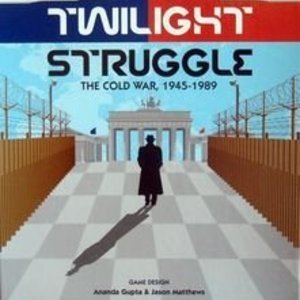
Twilight Struggle
Tabletop Game
"Now the trumpet summons us again, not as a call to bear arms, though arms we need; not as a call to...
Boardgames 2playergames PoliticalGames HistoricalGames
Film tie-in
I received this book for free through Goodreads First Reads.
Nominated for an Oscar, BAFTA and Golden Globe,Trumbo is a recent film based on the original biography Dalton Trumbo written by Bruce Cook in 1977. Its adaptation to film provided the perfect opportunity to republish this extremely well researched book. With a forward written by John McNamara, the screenwriter of the motion picture, the story of Dalton Trumbo’s life is just as intriguing as it was almost forty years ago. But who is Trumbo?
If, like me, you have never heard of Trumbo or even the infamous “Hollywood Ten,” it may take a while for it to become clear as to why it was worth Cook’s time to produce a book about the man. Dalton Trumbo was a well-known screenwriter of films such as Papillon, Lonely Are The Brave and Roman Holiday as well as author of the novel Johnny Got His Gun. However these are not all he is famous for. During his life, Trumbo became a member of the Communist Party, which Hollywood branded as an Un-American Activity and thus blacklisted him, as well as other screenwriters, directors and actors. Ten of these men, Trumbo included, were imprisoned for their political beliefs – yet nothing prevented Trumbo from continuing his fairly successful career.
Interestingly, Cook begins the book with the final stages of Trumbo’s life. At time of writing Trumbo was still alive, although rather poorly. After contracting lung cancer, having a lung removed, and suffering a heart attack, Trumbo was a very sick man; nonetheless he was still enthusiastic about being interviewed and telling his personal story.
From his childhood, to his evening shifts at a bakery, Cook details Trumbo’s early life, emphasizing the hard upbringing he had before he found himself in the world of Hollywood. Although roughly 75% of the book focuses on Trumbo’s career, Cook highlights Trumbo as a family man, with both a wife and three children who he absolutely adores.
Cook constantly refers to the Hollywood Ten as a concept that the reader should already be familiar with. Granted, someone who picks up this book is more likely to do so having a prior interest in the central figure, and thus already know about his background; however those ignorant on the topic eventually gather a better understanding on the topic once reaching the relevant chapters. It also becomes clearer why Trumbo is worth reading/writing about – he may have been blacklisted, but he managed to break through all the barriers and reinstate his name and many others.
Reading this half a century after the event, it seems strange that Trumbo was imprisoned. He had not done anything intrinsically wrong, it was purely prejudice against his political beliefs that got him into the mess he found himself. But when you consider the events of the time: World War Two, the Cold War, the Korean War, and Vietnam; it is understandable why many feared those who claimed to be Communists.
Cook’s narrative does not flow as a story, and much of it is broken up with quotes from various people he interviewed. The timeline jumps about between past and present (1970s), which occasionally gets a bit confusing. A large part of the book is spent analyzing many of Trumbo’s works – both for screen and written formats – which, unless you have a particular interest, can be a little tedious.
It has got to be said that Bruce Cook was an exemplary writer with a great eye for detail. He did not jump to conclusions or only talk about things from his point of view. Instead he interviewed, what seems like, everyone who ever met Trumbo, and based his writing on fact backed up with numerous quotes and citations.
This edition of Trumbo contains a selection of photographs taken on the set of the movie. Disappointingly it does not contain any of Trumbo himself – you would think that some photos could have been tracked down!
Trumbo is not a book that will interest everyone. Most people today – particularly in England – will probably be unaware of who Dalton Trumbo was, and thus would only seek out this publication due to a fascination with film production. I have not seen the film, but after reading this and discovering how books go from novels, to screenplays to moving image, it would be interesting to find out which parts of Trumbo’s life made it onto the big screen.
Nominated for an Oscar, BAFTA and Golden Globe,Trumbo is a recent film based on the original biography Dalton Trumbo written by Bruce Cook in 1977. Its adaptation to film provided the perfect opportunity to republish this extremely well researched book. With a forward written by John McNamara, the screenwriter of the motion picture, the story of Dalton Trumbo’s life is just as intriguing as it was almost forty years ago. But who is Trumbo?
If, like me, you have never heard of Trumbo or even the infamous “Hollywood Ten,” it may take a while for it to become clear as to why it was worth Cook’s time to produce a book about the man. Dalton Trumbo was a well-known screenwriter of films such as Papillon, Lonely Are The Brave and Roman Holiday as well as author of the novel Johnny Got His Gun. However these are not all he is famous for. During his life, Trumbo became a member of the Communist Party, which Hollywood branded as an Un-American Activity and thus blacklisted him, as well as other screenwriters, directors and actors. Ten of these men, Trumbo included, were imprisoned for their political beliefs – yet nothing prevented Trumbo from continuing his fairly successful career.
Interestingly, Cook begins the book with the final stages of Trumbo’s life. At time of writing Trumbo was still alive, although rather poorly. After contracting lung cancer, having a lung removed, and suffering a heart attack, Trumbo was a very sick man; nonetheless he was still enthusiastic about being interviewed and telling his personal story.
From his childhood, to his evening shifts at a bakery, Cook details Trumbo’s early life, emphasizing the hard upbringing he had before he found himself in the world of Hollywood. Although roughly 75% of the book focuses on Trumbo’s career, Cook highlights Trumbo as a family man, with both a wife and three children who he absolutely adores.
Cook constantly refers to the Hollywood Ten as a concept that the reader should already be familiar with. Granted, someone who picks up this book is more likely to do so having a prior interest in the central figure, and thus already know about his background; however those ignorant on the topic eventually gather a better understanding on the topic once reaching the relevant chapters. It also becomes clearer why Trumbo is worth reading/writing about – he may have been blacklisted, but he managed to break through all the barriers and reinstate his name and many others.
Reading this half a century after the event, it seems strange that Trumbo was imprisoned. He had not done anything intrinsically wrong, it was purely prejudice against his political beliefs that got him into the mess he found himself. But when you consider the events of the time: World War Two, the Cold War, the Korean War, and Vietnam; it is understandable why many feared those who claimed to be Communists.
Cook’s narrative does not flow as a story, and much of it is broken up with quotes from various people he interviewed. The timeline jumps about between past and present (1970s), which occasionally gets a bit confusing. A large part of the book is spent analyzing many of Trumbo’s works – both for screen and written formats – which, unless you have a particular interest, can be a little tedious.
It has got to be said that Bruce Cook was an exemplary writer with a great eye for detail. He did not jump to conclusions or only talk about things from his point of view. Instead he interviewed, what seems like, everyone who ever met Trumbo, and based his writing on fact backed up with numerous quotes and citations.
This edition of Trumbo contains a selection of photographs taken on the set of the movie. Disappointingly it does not contain any of Trumbo himself – you would think that some photos could have been tracked down!
Trumbo is not a book that will interest everyone. Most people today – particularly in England – will probably be unaware of who Dalton Trumbo was, and thus would only seek out this publication due to a fascination with film production. I have not seen the film, but after reading this and discovering how books go from novels, to screenplays to moving image, it would be interesting to find out which parts of Trumbo’s life made it onto the big screen.
My rating: 3.5
<i>I received this book for free through Goodreads First Reads.</i>
Nominated for an Oscar, BAFTA and Golden Globe, <i>Trumbo</i> is a recent film based on the original biography <i>Dalton Trumbo</i> written by Bruce Cook in 1977. Its adaptation to film provided the perfect opportunity to republish this extremely well researched book. With a forward written by John McNamara, the screenwriter of the motion picture, the story of Dalton Trumbo’s life is just as intriguing as it was almost forty years ago. But who is Trumbo?
If, like me, you have never heard of Trumbo or even the infamous “Hollywood Ten,” it may take a while for it to become clear as to why it was worth Cook’s time to produce a book about the man. Dalton Trumbo was a well-known screenwriter of films such as <i>Papillon, Lonely Are The Brave</i> and <i>Roman Holiday</i> as well as author of the novel <i>Johnny Got His Gun</i>. However these are not all he is famous for. During his life, Trumbo became a member of the Communist Party, which Hollywood branded as an Un-American Activity and thus blacklisted him, as well as other screenwriters, directors and actors. Ten of these men, Trumbo included, were imprisoned for their political beliefs – yet nothing prevented Trumbo from continuing his fairly successful career.
Interestingly, Cook begins the book with the final stages of Trumbo’s life. At time of writing Trumbo was still alive, although rather poorly. After contracting lung cancer, having a lung removed, and suffering a heart attack, Trumbo was a very sick man; nonetheless he was still enthusiastic about being interviewed and telling his personal story.
From his childhood, to his evening shifts at a bakery, Cook details Trumbo’s early life, emphasizing the hard upbringing he had before he found himself in the world of Hollywood. Although roughly 75% of the book focuses on Trumbo’s career, Cook highlights Trumbo as a family man, with both a wife and three children who he absolutely adores.
Cook constantly refers to the Hollywood Ten as a concept that the reader should already be familiar with. Granted, someone who picks up this book is more likely to do so having a prior interest in the central figure, and thus already know about his background; however those ignorant on the topic eventually gather a better understanding on the topic once reaching the relevant chapters. It also becomes clearer why Trumbo is worth reading/writing about – he may have been blacklisted, but he managed to break through all the barriers and reinstate his name and many others.
Reading this half a century after the event, it seems strange that Trumbo was imprisoned. He had not done anything intrinsically wrong, it was purely prejudice against his political beliefs that got him into the mess he found himself. But when you consider the events of the time: World War Two, the Cold War, the Korean War, and Vietnam; it is understandable why many feared those who claimed to be Communists.
Cook’s narrative does not flow as a story, and much of it is broken up with quotes from various people he interviewed. The timeline jumps about between past and present (1970s), which occasionally gets a bit confusing. A large part of the book is spent analyzing many of Trumbo’s works – both for screen and written formats – which, unless you have a particular interest, can be a little tedious.
It has got to be said that Bruce Cook was an exemplary writer with a great eye for detail. He did not jump to conclusions or only talk about things from his point of view. Instead he interviewed, what seems like, everyone who ever met Trumbo, and based his writing on fact backed up with numerous quotes and citations.
This edition of <i>Trumbo</i> contains a selection of photographs taken on the set of the movie. Disappointingly it does not contain any of Trumbo himself – you would think that some photos could have been tracked down!
<i>Trumbo</i> is not a book that will interest everyone. Most people today – particularly in England – will probably be unaware of who Dalton Trumbo was, and thus would only seek out this publication due to a fascination with film production. I have not seen the film, but after reading this and discovering how books go from novels, to screenplays to moving image, it would be interesting to find out which parts of Trumbo’s life made it onto the big screen.
<i>I received this book for free through Goodreads First Reads.</i>
Nominated for an Oscar, BAFTA and Golden Globe, <i>Trumbo</i> is a recent film based on the original biography <i>Dalton Trumbo</i> written by Bruce Cook in 1977. Its adaptation to film provided the perfect opportunity to republish this extremely well researched book. With a forward written by John McNamara, the screenwriter of the motion picture, the story of Dalton Trumbo’s life is just as intriguing as it was almost forty years ago. But who is Trumbo?
If, like me, you have never heard of Trumbo or even the infamous “Hollywood Ten,” it may take a while for it to become clear as to why it was worth Cook’s time to produce a book about the man. Dalton Trumbo was a well-known screenwriter of films such as <i>Papillon, Lonely Are The Brave</i> and <i>Roman Holiday</i> as well as author of the novel <i>Johnny Got His Gun</i>. However these are not all he is famous for. During his life, Trumbo became a member of the Communist Party, which Hollywood branded as an Un-American Activity and thus blacklisted him, as well as other screenwriters, directors and actors. Ten of these men, Trumbo included, were imprisoned for their political beliefs – yet nothing prevented Trumbo from continuing his fairly successful career.
Interestingly, Cook begins the book with the final stages of Trumbo’s life. At time of writing Trumbo was still alive, although rather poorly. After contracting lung cancer, having a lung removed, and suffering a heart attack, Trumbo was a very sick man; nonetheless he was still enthusiastic about being interviewed and telling his personal story.
From his childhood, to his evening shifts at a bakery, Cook details Trumbo’s early life, emphasizing the hard upbringing he had before he found himself in the world of Hollywood. Although roughly 75% of the book focuses on Trumbo’s career, Cook highlights Trumbo as a family man, with both a wife and three children who he absolutely adores.
Cook constantly refers to the Hollywood Ten as a concept that the reader should already be familiar with. Granted, someone who picks up this book is more likely to do so having a prior interest in the central figure, and thus already know about his background; however those ignorant on the topic eventually gather a better understanding on the topic once reaching the relevant chapters. It also becomes clearer why Trumbo is worth reading/writing about – he may have been blacklisted, but he managed to break through all the barriers and reinstate his name and many others.
Reading this half a century after the event, it seems strange that Trumbo was imprisoned. He had not done anything intrinsically wrong, it was purely prejudice against his political beliefs that got him into the mess he found himself. But when you consider the events of the time: World War Two, the Cold War, the Korean War, and Vietnam; it is understandable why many feared those who claimed to be Communists.
Cook’s narrative does not flow as a story, and much of it is broken up with quotes from various people he interviewed. The timeline jumps about between past and present (1970s), which occasionally gets a bit confusing. A large part of the book is spent analyzing many of Trumbo’s works – both for screen and written formats – which, unless you have a particular interest, can be a little tedious.
It has got to be said that Bruce Cook was an exemplary writer with a great eye for detail. He did not jump to conclusions or only talk about things from his point of view. Instead he interviewed, what seems like, everyone who ever met Trumbo, and based his writing on fact backed up with numerous quotes and citations.
This edition of <i>Trumbo</i> contains a selection of photographs taken on the set of the movie. Disappointingly it does not contain any of Trumbo himself – you would think that some photos could have been tracked down!
<i>Trumbo</i> is not a book that will interest everyone. Most people today – particularly in England – will probably be unaware of who Dalton Trumbo was, and thus would only seek out this publication due to a fascination with film production. I have not seen the film, but after reading this and discovering how books go from novels, to screenplays to moving image, it would be interesting to find out which parts of Trumbo’s life made it onto the big screen.
Gareth von Kallenbach (980 KP) rated Watchmen (2009) in Movies
Aug 14, 2019
In an alternate 1985, where Nixon is president, The U.S. won the Vietnam War, and costumed heroes have been banned by an act of the Senate, a superhero is killed. The death of the mercurial entity known as The Comedian (Jeffrey Dean Morgan) sets a string of events into motion that will soon see the world poised on the edge of nuclear annihilation, and the few remaining heroes locked in a life or death race against time to save the world. In the gritty and compelling new movie “Watchmen” by Director Zack Snyder, a clever blend of film noir and gumshoe style films of old combined with action and adventure as well as a deep examination of human frailties to create a film like no other.
No sooner has the death of the Comedian hit the streets (literally), when the edgy vigilante Rorschach (Jackie Earle Haley), begins to suspect that there is a larger and far more sinister plot in effect, one that has targeted the few remaining costumed avengers of New York City. Rorschach’s theory is disbelieved by his former associate Dan (Patrick Wilson), who prowled the streets as Night Owl and is now content to keep to himself, with his days of costumed glory behind him. He keeps his social circle limited to the first Night Owl and visiting with Laurie Jupiter ( Malin Akerman), and her husband, Dr. Manhattan (Billy Crudup).
With his concerns being dismissed, Rorschach is left to do the legwork on the mystery which soon shifts into high gear when he is framed for a murder he actually did not commit and an attempt is made on the life of the other former Watchmen, Ozymandias (Matthew Goode). With Rorschach in prison and surrounded by enemies, Dr. Manhattan, the all powerful and blue skinned being, is forced to take refuge on Mars after Laurie leaves him and a series of accusations are levied against him at a press conference .
It soon becomes clear to all that the death of The Comedian was not a random act of violence or a simple act of revenge, but rather the first salvo in a war against costumed heroes. With the former team in chaos, Laurie to take up residence with Dan, who has long held a torch for her, to defy the government order and suit up again. After saving a group of people from a fire, Laurie and Dan find the passion and purpose that has been missing from their post-hero lives and passionately unite and set out to free Rorschach and get to the bottom of the conspiracy before it is to late.
The film is an amazing mix of comic book action and mystery that includes a suprising amount of mature material that examines everything from humanity’s ultimate destiny to the inner psyche of tortured and flawed individuals. The characters all have their flaws and traumas and compensate by donning masks and taking on new personas. The deeply troubled Rorschach is filled in by some horrific and disturbing flashbacks that show how he became the disturbed and deeply dangerous crusader for justice that he is, so extreme in his measures that he is wanted by the police for his actions. Dan and Laurie try to move on from their past, but find that they are more comfortable in their costumed personas than they are in their day-to-day lives. Dr. Manhattan is perhaps the most dysfunctional of all as he has shut himself off from his wife, humanity, and joy. He has evolved beyond caring for anything but his experiments.
Snyder keeps the nearly three hour film moving at a brisk pace and deftly captures the look and tone of the graphic novel on which the film is based. The opening segment that shows alternate versions of great moments in history is amazing, as is the well choreographed action sequences. Despite being a superhero film, “Watchmen” is a superb mystery and drama that is loaded with interesting characters and clever social commentary. The cast is very strong, and Haley is remarkable as Rorschach. He is utterly captivating whenever he is on the screen and has crafted a true modern anti-hero for the masses.
Some may find the graphic violence and sex in the film a bit extreme, but in order to fully capture the duality of the characters and the dark world that they dwell in, it was in many ways restrained from what is actually implied by the source material. “Watchmen”, is a true marvel and is one of the most entertaining, diverse, and original action films in memory.
No sooner has the death of the Comedian hit the streets (literally), when the edgy vigilante Rorschach (Jackie Earle Haley), begins to suspect that there is a larger and far more sinister plot in effect, one that has targeted the few remaining costumed avengers of New York City. Rorschach’s theory is disbelieved by his former associate Dan (Patrick Wilson), who prowled the streets as Night Owl and is now content to keep to himself, with his days of costumed glory behind him. He keeps his social circle limited to the first Night Owl and visiting with Laurie Jupiter ( Malin Akerman), and her husband, Dr. Manhattan (Billy Crudup).
With his concerns being dismissed, Rorschach is left to do the legwork on the mystery which soon shifts into high gear when he is framed for a murder he actually did not commit and an attempt is made on the life of the other former Watchmen, Ozymandias (Matthew Goode). With Rorschach in prison and surrounded by enemies, Dr. Manhattan, the all powerful and blue skinned being, is forced to take refuge on Mars after Laurie leaves him and a series of accusations are levied against him at a press conference .
It soon becomes clear to all that the death of The Comedian was not a random act of violence or a simple act of revenge, but rather the first salvo in a war against costumed heroes. With the former team in chaos, Laurie to take up residence with Dan, who has long held a torch for her, to defy the government order and suit up again. After saving a group of people from a fire, Laurie and Dan find the passion and purpose that has been missing from their post-hero lives and passionately unite and set out to free Rorschach and get to the bottom of the conspiracy before it is to late.
The film is an amazing mix of comic book action and mystery that includes a suprising amount of mature material that examines everything from humanity’s ultimate destiny to the inner psyche of tortured and flawed individuals. The characters all have their flaws and traumas and compensate by donning masks and taking on new personas. The deeply troubled Rorschach is filled in by some horrific and disturbing flashbacks that show how he became the disturbed and deeply dangerous crusader for justice that he is, so extreme in his measures that he is wanted by the police for his actions. Dan and Laurie try to move on from their past, but find that they are more comfortable in their costumed personas than they are in their day-to-day lives. Dr. Manhattan is perhaps the most dysfunctional of all as he has shut himself off from his wife, humanity, and joy. He has evolved beyond caring for anything but his experiments.
Snyder keeps the nearly three hour film moving at a brisk pace and deftly captures the look and tone of the graphic novel on which the film is based. The opening segment that shows alternate versions of great moments in history is amazing, as is the well choreographed action sequences. Despite being a superhero film, “Watchmen” is a superb mystery and drama that is loaded with interesting characters and clever social commentary. The cast is very strong, and Haley is remarkable as Rorschach. He is utterly captivating whenever he is on the screen and has crafted a true modern anti-hero for the masses.
Some may find the graphic violence and sex in the film a bit extreme, but in order to fully capture the duality of the characters and the dark world that they dwell in, it was in many ways restrained from what is actually implied by the source material. “Watchmen”, is a true marvel and is one of the most entertaining, diverse, and original action films in memory.
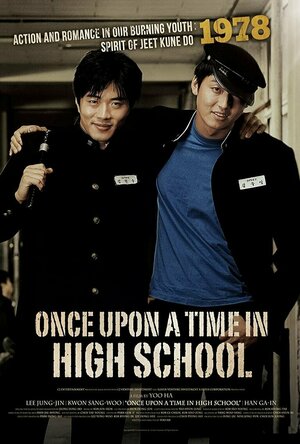
Once Upon a Time in High School: The Spirit of Jeet Kune Do (2004)
Movie
By "Fist of Fury", Kim Hyun-Soo (Sang-Woo Kwone) addicted to Bruce Lee. Year 1978. Hyun-Soo moved to...

